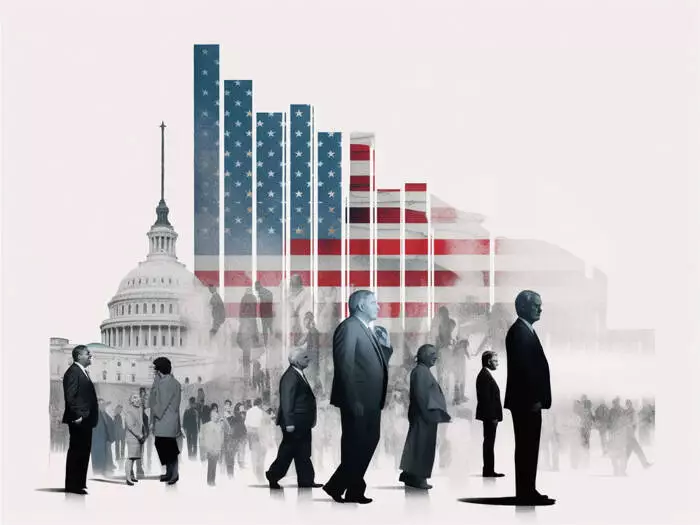The burgeoning trend of political betting is not without its risks, particularly regarding its integrity and reliability. Recently, a significant incident involving a single trader placing massive bets on Trump-related contracts across various Polymarket accounts has surfaced, raising alarm bells about the potential for manipulation within this thinly traded market. Although no illegal activity occurred, the event provides a critical insight into the vulnerability of prediction markets that are often characterized by limited regulatory supervision. These revelations prompt questions about the overall trustworthiness of such platforms and whether they can maintain credibility amid the chaos of electoral speculation.
The overall enthusiasm surrounding political betting has been noticeably dimmed by stark warnings from prominent financial figures like Paul Tudor Jones. With the United States’ federal deficit expected to hit an astounding $1.8 trillion by 2024, Jones articulates a more profound concern than the results of the election: the risk of a bond market collapse. His predictions raise the specter of interest rates soaring to potentially damaging levels. In essence, the current candidates espousing economic policies may be ill-prepared to tackle an impending fiscal crisis that looms threateningly over the horizon. Jones’s notion of a “Minsky moment”—a drastic market downturn triggered by unsustainable economic strategies—imbues his analysis with a sense of urgency that resonantly underscores the intertwined fate of politics and finance.
As Jones strategically reduces his bond investments, he is bracing for eroding stability and heightened volatility in long-term bonds. This cautious maneuver reflects a broader apprehension within the investment community about the U.S. government’s financial trajectory. As the political landscape shifts post-election, policymakers may be compelled to make tough choices that could include reversing tax reforms instituted during the Trump administration or imposing stringent cuts to public expenditure. This reality casts a long shadow over the landscape of political betting, as election victors may inherit economic challenges that extend far beyond the political sphere, thereby complicating the narrative that these betting platforms seek to capitalize on.
The juxtaposition of Robinhood’s election betting contracts and Tudor Jones’s somber fiscal forecasts presents investors with a unique dilemma. While the prospect of capitalizing on political events appears appealing, prudent investors must consider the looming economic pressures that threaten to derail short-term betting gains. As participants in this novel realm of predictive trading, market players must delicately balance the compelling nature of election speculation with the cumbersome reality of impending economic adjustments.
The intersection of political predictions and fundamental economic realities paints a complex picture of the current American landscape. As the political arena pulses with anticipation, it is essential for investors to remain vigilant. They must grasp that while the outcomes of elections can indeed create speculative opportunities, the ramifications of ongoing fiscal imprudence may ultimately overshadow these short-lived gains. Thus, the narrative of a presidential victory may soon evolve into a cautionary tale showcasing the delicate equilibrium between democratic processes and fiscal sustainability.

